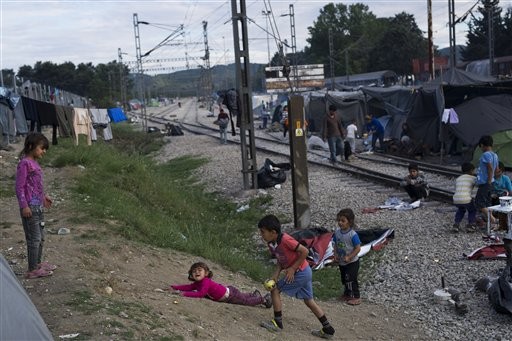Popular Reads
Top Results
Can't find what you're looking for?
View all search resultsPopular Reads
Top Results
Can't find what you're looking for?
View all search resultsUN envoy blasts EU's 'lack of vision' on migration
Change text size
Gift Premium Articles
to Anyone
A
UN envoy for human rights on Monday said the European Union's response to the refugee crisis showed a "lack of vision" and that the bloc's deal with Turkey was legally questionable.
The envoy, Francois Crepeau, said the March agreement between the EU and Turkey to send back migrants reaching Europe required "much stronger legal instruments to ensure legal accountability."
"The legal nature of the document is uncertain," Crepeau told reporters in Athens after a five-day visit to Greece that included trips to detention sites and migrant camps.
He added that Greek and European courts would need to determine whether the agreement has any "legal value."
The EU didn't immediately comment on Crepeau's remarks.
The aim of the deal between the EU and Turkey is to stop the flow of hundreds of thousands of people from Turkey to nearby Greek islands, which had become by far the most popular route for refugees and migrants into Europe.
Under the agreement, those arriving on Greek islands on or after March 20 face detention and deportation back to Turkey unless they are granted asylum in often reluctant EU countries. The process has strained financially stricken Greece where about a quarter of the workforce is unemployed.
A total of about 50,000 people are stranded in Greece since European countries, including Austria and Balkan states, closed their borders to migrants earlier this year.
Crepeau expressed concern that children were among those detained in Greece, as part of the EU-Turkey agreement, and in police cells on mainland Greece because of gaps in welfare coverage.
He urged an immediate change in policy, with an urgent provision of additional resources to child protection services.
"Children should not be detained. Period ... It can never ever be in the best interest of the child," Crepeau said.
Human rights groups including Amnesty International and Human Rights Watch have repeatedly criticized the detention policy in Greece and the EU-Turkey agreement, arguing that Turkey shouldn't be considered a safe country for refugee returns.
"I think that there is a lack of vision at the EU level — there's no long-term human rights-based migration policy. We need a generational strategy of where we'd like to be in 10 or 20 years," Crepeau said.
"The [EU] needs to respond to the crisis with pre-prepared tools and not try to invent them every time a crisis happens."
In London, actress Angelina Jolie said she was "very disheartened" by the US response to the global migration crisis, and fears countries will adopt increasingly isolationist policies instead of acting together to tackle the challenge.
The special envoy for the UN refugee agency said that worries about uncontrolled immigration has given a "false air of legitimacy to those who promote politics of fear and separation."










